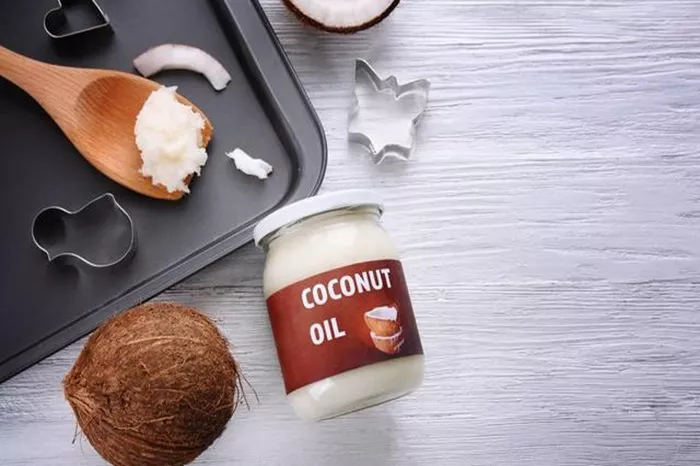Coconut oil has been praised for its versatility and numerous health benefits, making it a popular choice in many households. Among its various uses, coconut oil is often recommended for hair care, including for infants. This article delves into the benefits and myths surrounding the use of coconut oil for infants’ hair, providing a comprehensive guide for parents and caregivers.
Understanding the Composition of Coconut Oil
Nutrient-Rich Profile
Coconut oil is derived from the meat of mature coconuts and is rich in essential nutrients, including:
Lauric Acid: Known for its antimicrobial properties.
Vitamin E: An antioxidant that supports skin health.
Fatty Acids: Such as caprylic acid and capric acid, which have moisturizing properties.
Types of Coconut Oil
There are different types of coconut oil available, each with distinct characteristics:
Virgin Coconut Oil: Unrefined and minimally processed, retaining most of its natural nutrients.
Refined Coconut Oil: Processed to remove impurities and has a higher smoke point.
Fractionated Coconut Oil: Liquid at room temperature and often used in cosmetics.
Benefits of Coconut Oil for Infants’ Hair
Moisturizing Properties
Coconut oil is an excellent moisturizer, which is beneficial for infants’ delicate hair and scalp. The fatty acids in coconut oil penetrate the hair shaft, providing deep hydration and preventing dryness and flakiness.
Promotes Healthy Hair Growth
The nutrients in coconut oil, particularly vitamin E, support healthy hair growth. Regular application can strengthen hair, making it less prone to breakage and promoting overall hair health.
Soothes Cradle Cap
Cradle cap, a common condition in infants, is characterized by scaly patches on the scalp. Coconut oil can help soften these scales, making them easier to gently remove and reducing irritation.
Antimicrobial Properties
Lauric acid in coconut oil has natural antimicrobial properties, which can help protect the scalp from infections and maintain a healthy scalp environment.
Natural and Safe
Coconut oil is a natural product, free from synthetic chemicals and additives, making it a safe option for infants’ sensitive skin and hair.
See also: Unlocking the Benefits of Coconut Oil for Hair and Scalp Care Health
How to Use Coconut Oil for Infants’ Hair
Choosing the Right Coconut Oil
Opt for virgin or extra-virgin coconut oil, as these varieties are less processed and retain more of the beneficial nutrients.
Application Techniques
1. Gentle Massage: Warm a small amount of coconut oil between your hands and gently massage it into your baby’s scalp and hair. This not only helps distribute the oil evenly but also promotes blood circulation.
2. Leave-In Treatment: For extra hydration, you can leave the coconut oil on your baby’s hair for a few hours or overnight before washing it off with a mild baby shampoo.
3. Cradle Cap Treatment: Apply coconut oil to the affected areas of the scalp, leave it on for about 15-20 minutes, and then gently comb out the softened flakes before washing the hair.
Frequency of Use
Using coconut oil 2-3 times a week is generally sufficient for maintaining healthy hair and scalp. Adjust the frequency based on your baby’s specific needs and hair type.
Myths and Misconceptions About Coconut Oil for Infants’ Hair
Myth: Coconut Oil Can Cause Allergies
Coconut oil is generally considered hypoallergenic and safe for most infants. However, as with any product, there is a small risk of allergic reactions. It’s advisable to do a patch test on a small area of your baby’s skin before using it extensively.
Myth: Coconut Oil Alone Can Cure All Scalp Issues
While coconut oil has many beneficial properties, it is not a cure-all. Conditions such as severe cradle cap, eczema, or fungal infections may require medical treatment. Coconut oil can be part of the care regimen but should not replace professional medical advice.
Myth: More is Always Better
Using excessive amounts of coconut oil can lead to greasy hair and potential scalp buildup. It’s important to use a moderate amount and ensure thorough rinsing to avoid residue.
Scientific Insights on Coconut Oil for Hair Care
Research Supporting Coconut Oil’s Benefits
Several studies have highlighted the effectiveness of coconut oil for hair care:
A study published in the Journal of Cosmetic Science found that coconut oil can penetrate the hair shaft and reduce protein loss in both damaged and undamaged hair.
Another study in the International Journal of Trichology reported that coconut oil’s lauric acid content makes it more effective at binding to hair proteins compared to other oils, providing better protection against damage.
Expert Opinions
Dermatologists and pediatricians often recommend coconut oil for its moisturizing and antimicrobial properties. However, they also emphasize the importance of using it correctly and not relying solely on it for treating medical conditions.
Practical Tips for Parents and Caregivers
Patch Testing
Before applying coconut oil extensively, perform a patch test by applying a small amount to your baby’s inner arm or behind the ear. Wait 24 hours to check for any adverse reactions.
Combining with Other Natural Ingredients
For enhanced benefits, coconut oil can be combined with other natural ingredients such as aloe vera or chamomile. These ingredients can provide additional soothing and moisturizing effects.
Monitoring Scalp Health
Regularly check your baby’s scalp for any signs of irritation, dryness, or infection. If you notice persistent issues, consult a pediatrician for appropriate advice and treatment.
Storage and Shelf Life
Store coconut oil in a cool, dry place away from direct sunlight to maintain its quality. Virgin coconut oil typically has a longer shelf life compared to refined versions.
Conclusion
Coconut oil offers numerous benefits for infants’ hair and scalp, from moisturizing and soothing cradle cap to promoting healthy hair growth. Its natural, nutrient-rich composition makes it a safe and effective choice for many parents and caregivers. However, it’s important to use coconut oil correctly and be mindful of potential myths and misconceptions. By following practical tips and monitoring your baby’s scalp health, you can confidently incorporate coconut oil into your infant’s hair care routine, ensuring they enjoy the full benefits of this versatile oil.


